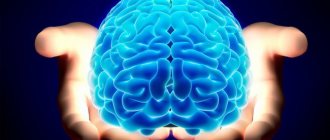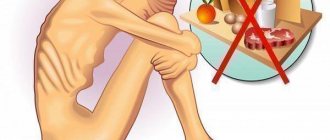The nervous system, as we know, is a fragile thing, and therefore it must be protected from a young age. Fragility is caused by a number of factors, including heredity. It is extremely important that the nervous system works like a clock, otherwise great sorrow awaits the person. The entire nervous system is responsible for coordinating the activities of individual systems of the human (and not just the human) body. It's the same with animals. The nervous system is a kind of intermediary between the person himself and the world that surrounds him.
Characteristics of the nervous system
Let's try to figure out what our nervous system consists of. And it, as you know, consists of:
- central nervous system , consisting of: the spinal cord and the brain, which includes: the hindbrain and midbrain, the cerebellum, the limbic system, as well as the cerebral cortex. Of course, these are not all components of the central nervous system, but we still listed the main ones.
- peripheral nervous system (this is everything that is outside the head and spinal cord), for example, nerve fibers and nerve cells.
The nervous system is a multifunctional thing. On the one hand, it is responsible for the perception of signals coming to us both from external and internal stimuli. Cellular and sensory receptors help us “decipher” signals. Thanks to the latter, we are able to feel cold and heat, light and color and other stimuli.
The received signals are immediately encoded by the nervous system, converted into nerve impulses. After which the impulses travel along the nerve fibers and enter the so-called nerve centers, where they are analyzed.
Once the signal is analyzed, a response follows, which, for example, can be expressed in some movement or redness of the skin. In addition, the nervous system is responsible for homeostasis (its regulation), ensuring the most effective interaction of all human tissues and internal organs.
The nervous system, through mental reactions, is responsible for memory, emotions, thinking, creativity, etc.
Alas, some people have a weak nervous system from birth, while for others it weakens with age.
Symptoms of a nervous disorder
The modern lifestyle of the majority is simply impossible without stress. Poor environment, junk food, alcohol, heredity, non-compliance with the daily routine aggravate the condition of the nervous system and lead to its dysfunction.
At first, a bad mood and excessive irritability appear. Failure to treat these primary manifestations can provoke the emergence of a full-fledged nervous illness.
All nervous disorders can be divided into two subgroups: neuroses, which in turn are divided into neurasthenia, obsessive-compulsive neurosis, hysteria, and vegetative-vascular dystonia.
The clinical picture of neuroses is characterized by a connection only with the nervous system and is manifested by: headaches, depression, irritability, mood swings, sleep disturbances and memory loss.
Neurasthenia is characterized by suppression of the activity of the entire nervous system, which leads to increased fatigue, aggressiveness, insomnia, and tachycardia. In addition, there may be an unreasonable change in body weight, either down or up.
Obsessive-compulsive neurosis, as a rule, arises from long-term depression and is manifested by unreasonable fears, causeless anxiety, and restlessness. At the same time, nervous tension becomes a constant companion, which is reflected in general well-being - pain appears, old problems get worse.
Hysteria may be accompanied by nausea, loss of appetite, weight loss, heart rhythm disturbances, and low-grade fever.
The symptoms of vegetative-vascular dystonia are different and are characterized by relationships with other systems and organs. This disorder can manifest itself as dizziness, fainting, changes in blood pressure, and dysfunction of the digestive system.
A functional disorder of the nervous system is manifested by decreased concentration and memory, irritability, fatigue, sleep disorders, depressive states, and mood swings.
Unfortunately, as the years pass, nervous pathologies, if you do not take medications for a nervous disorder, do not disappear, but tend to intensify and provoke the appearance of new disorders.
Main signs of a weak nervous system
Every pathology has its own characteristic features that can be described. In general, a weakened nervous system also has markers by which one can understand that something is going wrong.
The first sign.
Indecisiveness. As soon as the sensitivity of the nervous system increases, a person becomes mega-manageable. As a rule, such a person does not have his own opinion and is ready to follow others to the ends of the earth, without fully realizing whether he needs it.
Sign two.
Indifference. In this case, we are talking about the fact that a person accepts the kicks and blows of fate without complaining. Weakness of the nervous system gives rise to laziness, which can be expressed both in the lack of physical activity (you want to lie on the couch and watch TV), and in the lack of social activity (contacts with society tend to zero, there are no friends, no truly close people, no contacts with colleagues, neighbors, etc.).
Sign three.
Anxiety. The more a person worries, the faster his nervous system breaks down. Anxiety most often ends in a nervous breakdown, and they become more frequent over time. Such people always feel like very pitiful and worthless creatures, just like Piglet from the fairy tale about Winnie the Pooh.
Sign four.
Doubts. The higher the sensitivity of the nervous system, the more doubts a person is subject to. Sensitive people are in constant doubt about everything: about others, about themselves. These are very envious people who easily justify their own defeats, blaming others for everything, but never themselves.
Sign five.
Overcautiousness. This is a story about how the right moment is about to come, that I’m just about to make up my mind, but nothing happens, a person lives his life, but never decides to do anything. These are pessimistic people who can postpone their plans for later because of any little thing.
The very fear that everything could go wrong can already stop them from acting. It is these people who most often suffer from nervousness and problems associated with the thyroid gland. Over time, this “bouquet” is also accompanied by blood problems, as well as excess weight.
Well, when we more or less understood for ourselves what the nervous system is, what it is responsible for and how it functions, it’s time to talk about something very important: how exactly it can be supported.
Daily regime
Healthy and deep sleep can give the nervous system more strength. During rest, the body is restored and cells are renewed.
But early waking up, frequent awakenings, shallow sleep and lack of sleep weaken the nerves. In the absence of normal rest, a person becomes apathetic and lethargic, he has difficulty concentrating and has trouble thinking clearly. Lack of sleep often manifests itself in communication in the form of outbursts of aggression and irritation.
Collection to strengthen the nervous system
In order to prepare it you will need:
- calamus root,
- mint and mullein herbs.
You need to take three tablespoons of each of the above ingredients. Mix everything thoroughly. Next, one tablespoon of the mixture will need to be poured with one liter of boiling water. If you have a thermos, then it is best to brew the herb in it.
As soon as a couple of hours have passed, the infusion is ready for use. You need to take one hundred to one hundred and fifty grams, three times a day. The duration of the course depends on the severity. But not less than a month. After taking it for a month, you need to take a break, then the course can be repeated one or two more times.
Causes of NS pathologies
What causes disorders in the human nervous system? The main root causes of all known NS pathologies are:
- penetration of pathogenic microorganisms into the body;
- HIV infection, influenza, herpes;
- brain contusions of varying severity;
- heavy metals entering the body along with air, water and food;
- poor diet and fasting;
- uncontrolled use of pharmaceuticals;
- brain tumors.
Bath to calm the nervous system
Nothing calms the nerves like water. Nothing heals them better than a bath with medicinal herbs. For the bath you will need the following herbs:
- motherwort,
- valerian,
- yarrow. Take one tablespoon of each herb (per liter of water). Determine the concentration yourself. You can take three spoons of each herb for your bath (a total of nine spoons). The duration of such a bath is half an hour. Adjust the frequencies yourself, focusing on your own well-being.
Of course, you need to understand that one or two baths will not make a difference; to get a visible result, you need to do a course of at least ten baths (ten days in a row or with breaks of one day).
Diagnostics
When the first symptoms of disturbances in the functioning of the nervous system appear, the patient should consult a doctor. If, when examining a person, the doctor suspects an existing disease, he will be able to use one of the examination methods in the early stages of the disease. Among them:
- Instrumental diagnostics. In this case, the examination of systems and organs is carried out using mechanical devices and devices. Such methods include ultrasound, endoscopy, radiography, magnetic resonance imaging, neurosonography and some others.
- Laboratory research. They represent an analysis of biomaterial carried out using special instruments. These are studies that involve the use of special reagents and optical microscopy (serological and biochemical analyses), and also study the inoculation of microorganisms on a nutrient medium.
- Neurological testing. When using this technique, the doctor will use various scales and tests. The results obtained will allow us to assess the neurological status of the patient.
Fighting insomnia
In order for the longed-for sleep to come, which, as is known, restores the nervous system, it is not at all necessary to take sleeping pills. After all, they are addictive and then you won’t be able to sleep at all without them. It is best to try to solve the problem of insomnia with the help of herbs, for example, lovage.
This recipe is somewhat unusual, because the herb will be infused in water at room temperature. For one tablespoon of lovage you will need one glass of water. Just add water to the herb, stir and leave on the table for half a day. One glass is enough for two meals. You can drink the herb both in the morning (when waking up, because it also helps fight nervousness), and an hour and a half before bed.
Hardening
How to strengthen a weak nervous system? The most effective method that gives excellent results in this direction is winter swimming. It allows you not only to put your nerves in order and improve your health, but also to develop willpower.
With regular procedures, the body will gradually get used to cold water. Such persistence is very beneficial for health, but to get a positive result you will need to follow certain rules, namely:
- produce a gradual increase in the degree of cooling;
- perform procedures regularly.
To temper your nerves
It was not in vain that at the beginning of the article we gave examples of what happens when your nerves are naughty. The best remedy is prevention. If you know that there is a sin behind your nerves - they are of no use to us, then you need to work on restoring them.
Our recipe will help you strengthen your nervous system, without any harm to the body.
The recipe is simple, like all the ones above. In this case, you will need angelica (its roots). One tablespoon of crushed angelica roots is poured into one glass of boiling water. It would be good to boil this solution over low heat for at least five minutes.
Once five minutes have passed, turn off the heat and let the herb steep for an hour. Afterwards, we strain and drink three times a day, one-third of the time. A glass should be enough for the whole day.
Connection between body and mind
Every change that occurs in the human body certainly affects his health. That is why in medicine there is such a direction as psychosomatics, which establishes a connection between the mental processes occurring in the human body and its physiological state.
Any stress factor causes a protective reaction of the body, which is expressed in muscle tension. This allows a person to maintain health. After all, when the body is tense, the soul relaxes. When such situations occur infrequently, they do not have any negative consequences for the body. However, when random psychological traumas degenerate into prolonged stress, a person becomes ill. His pathology is of the psychosomatic type, which causes difficulties in making an accurate diagnosis. While doctors are looking for the origins of the disease, a person loses vigor and sleep, efficiency and energy. His ability to enjoy life disappears, and minor inconveniences gradually develop into significant problems.
Failures in the physiological processes of the body lead to pathologies in the mental sphere. A person has to live experiencing chronic fatigue, irritation, anxiety and vague restlessness. Over a short period of time, this condition develops into a neurotic disorder, significantly worsening the quality of life.
What to do if you have a weak nervous system? How to maintain health and prevent the development of many diseases? Simple methods that will be described below will help you achieve a significant effect.
Neurological disorders of the stomach and intestines
These are neuropsychiatric diseases. As the disease progresses and lack of treatment, it leads to damage to brain structures.
At the initial stages, no morphological and biochemical deviations from the norm are observed. Causes that lead to dysfunction of the nervous system:
- Hypoxia (lack of oxygen). The brain does not have the energy and nutrient reserves to function normally in the absence of oxygen. Therefore, even a few seconds or minutes lead to damage to neurons.
- Metabolic disorders. In case of disturbances, the amount of glucose is supplied in insufficient quantities, which leads to disruption of the conduction of nerve impulses and death of neurons.
- Increased or decreased temperatures. In extreme situations, the body goes into a limited mode of functioning, so inhibition of the nervous system is observed.
- Heredity.
- Drinking alcohol, smoking.
- Inflammation or swelling in brain structures.
Everyone who has experienced a neurological disorder has a stomach or intestinal disorder. Symptoms include:
- Violation of peristalsis. Manifests itself in the form of diarrhea, diarrhea, flatulence, cramping pain, irritable bowel syndrome.
- Violation of secretion. The normal secretion of gastric juice is disrupted.
- Reduced sensitivity threshold.
To avoid these unpleasant symptoms, during times of stress you should follow a proper diet, avoid smoked foods, fatty foods, fried foods, and do not overeat.
Possible consequences and complications
Nervous disorder refers to neuropsychiatric diseases that, if not properly treated, lead to damage to brain structures. The danger of such a disease is that in the initial stages there is no deviation from the norm.
Complications and possible consequences arise when there is no normal treatment for the disease, or when there is treatment, but the cause of the disease has not been eliminated.
Possible consequences of the disorder include the following:
- Impossibility of full social adaptation. It manifests itself in the fact that the patient has a persistent internal feeling of discomfort, he cannot communicate with other people.
- State of depression. It manifests itself in the fact that the patient is constantly in a depressed state.
Complications arise only if the patient has advanced the disease and did not consult a specialist in time. The disease will become chronic. As a result, treatment will become more complicated, and rehabilitation will take much longer.
An advanced disease leads to a change in a person’s character and his manner of communication in society. If treatment has begun, then changes will still be noticeable, mainly one can observe secrecy, a quick-tempered reaction to any irritant: light, sound or smell.
The degree of complication depends on the initial character of the patient, sometimes the worst character traits come to the fore. If a person was a weak person and easily vulnerable, then treatment can take a long time, and sometimes becomes a chronic condition. The result will no longer depend on treatment, even active, timely treatment.
Nutritional Features
In case of nervous disorder, it is advised to refrain from consuming any stimulating foods:
- Alcohol;
- Spicy foods;
- Coffee;
- Puff pastry;
- Fried foods.
During such a disease, it is necessary to consume as much as possible foods rich in phosphorus salts, which help restore normal functioning of neurons. Among them, the most useful are:
- Liver;
- Legumes;
- Dairy products;
- Fish.
To improve your well-being, you need to eat five meals a day in small portions.
There are several dietary habits that you should adhere to if you have this disease:
- There is no need to eat fresh bread; it is better to take slightly dried bread or, in extreme cases, dietary bread. Cookies and biscuits are allowed only from soft dough.
- When choosing meat, preference should be given to the type that contains less fat. It can be boiled or stewed, but not fried. It is worth taking beef, rabbit, chicken fillet, liver, tongue. It is better to stay away from sausages and sausages.
- You can eat all fish, as long as it is cooked at home, and not store-bought semi-finished products. You cannot eat caviar, salted or fried fish.
- All dairy products can be eaten.
- The number of eggs is limited - no more than 2 per day. Eat them soft-boiled.
- Cereals are allowed in any quantity. You can make soups, porridges or puddings from them.










